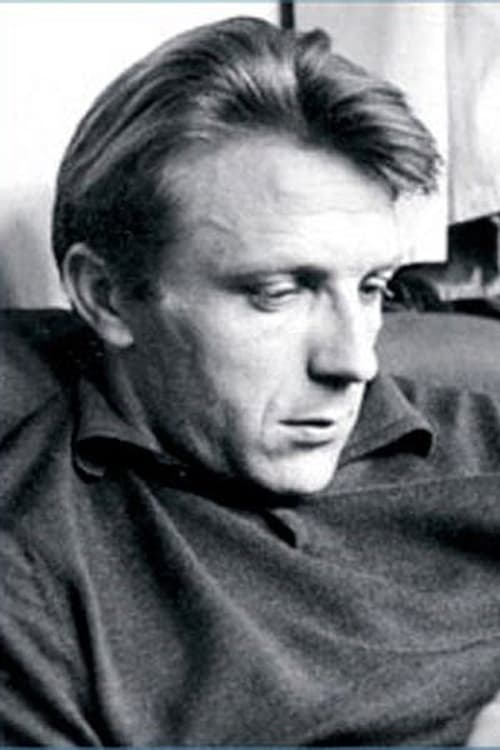Jean Eustache
출생 : 1938-11-30, Pessac, Gironde, France
사망 : 1981-11-05
약력
Jean Eustache was born on November 30, 1938 in Pessac, Gironde, France. He was a director and editor, known for The Mother and the Whore (1973), Mes Petites Amoureuses (1974) and Les photos d'Alix (1980). He died on November 3, 1981 in Paris, France.
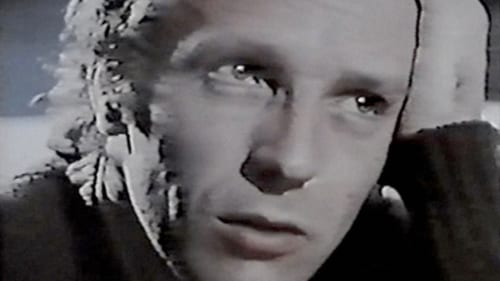
Self (archive footage)
Philippe Garrel’s documentary on France’s second wave of masterful filmmakers. Featuring Jean Eustache, Chantal Akerman, André Téchiné, Leos Carax, Jacques Doillon and Benoit Jacquot.

Thanks
Philippe Garrel’s documentary on France’s second wave of masterful filmmakers. Featuring Jean Eustache, Chantal Akerman, André Téchiné, Leos Carax, Jacques Doillon and Benoit Jacquot.

Himself
Milena Gabanelli sits in her room while listening to one of the last voice recordings of Jean Eustache.

Director
A man looks for a job, ignoring the selection process of employees. Part of "Contes modernes: A propos du travail."

Writer
Filmed by Jean Eustache for the television program, Les Enthousiastes, Hieronymous Bosch's Garden of Delights presents a series of unstructured observations, free associations, and interpretations on the third panel of Bosch's well-known oil on wood triptych.

Director
Filmed by Jean Eustache for the television program, Les Enthousiastes, Hieronymous Bosch's Garden of Delights presents a series of unstructured observations, free associations, and interpretations on the third panel of Bosch's well-known oil on wood triptych.

Director
Alix Cléo Roubaud, a photographer, describes her images to Eustache’s son Boris. An “essay in the shape of a hoax”, Eustache’s last film wittily questions the relationship between showing and telling as it gradually shifts Alix’s narration out of sync with what we see.

Editor
In 1979, under the presidency of the city mayor, the people of Pessac elect a virtuous and gracious maiden from amongst the residents, following a tradition that comes from times immemorial.

Writer
In 1979, under the presidency of the city mayor, the people of Pessac elect a virtuous and gracious maiden from amongst the residents, following a tradition that comes from times immemorial.

Director
In 1979, under the presidency of the city mayor, the people of Pessac elect a virtuous and gracious maiden from amongst the residents, following a tradition that comes from times immemorial.

Director
A group of friends listen as one man tells them a story about a time when, in a small cafe, he discovered a peephole into the ladies' bathroom and became addicted to looking through it at female genitals. They ask him questions and come to conclusions about sex. This is a filmed, scripted version. Then, the actual person who this happened to relates the same story; this time, however, it is an unscripted documentary, in which the same things occur as in the scripted one.
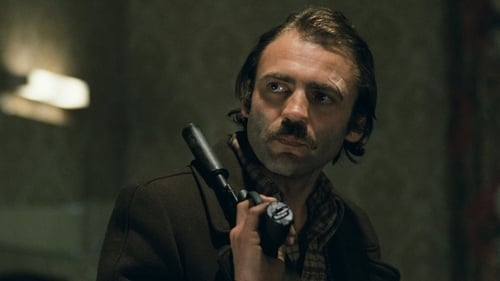
Friendly Man
함부르크에서 사는 액자공 조나단 짐머맨은 자신이 불치의 병에 걸린 시한부 인생이라는 사실을 정체가 분명하지 않은 미국인 미술품 브로커 리플리로부터 듣게 된다. 리플리는 짐머맨에게 요구를 들어주면 아내와 아들에게 유산으로 물려줄 수 있는 거액을 준다고 약속한다. 리플리의 제안에 따르기로한 짐머맨은 지시대로 파리의 지하철에서 한 사내를 죽이고,음모와 우연과 모험이 뒤얽힌 세계로 빠져든다.

un videur
This is the tale of a father-son duo who are unable to leave each other. The trouble begins when the son decides to destroy his father's image.

Editor
In the French countryside it's the day for peasants to kill a big fat pig. The slaughter goes on for a great part of the day as they work to store 140kg worth of meat.

Screenplay
In the French countryside it's the day for peasants to kill a big fat pig. The slaughter goes on for a great part of the day as they work to store 140kg worth of meat.

Director
In the French countryside it's the day for peasants to kill a big fat pig. The slaughter goes on for a great part of the day as they work to store 140kg worth of meat.
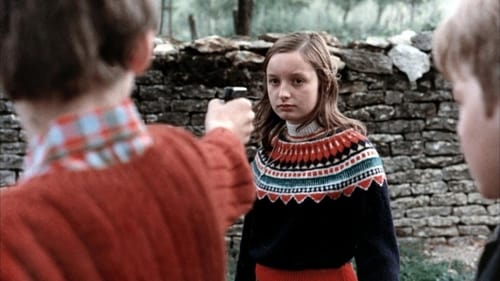
Writer
소도시에서 자라난 한 소년이 사춘기 시절에 겪은 자잘한 사건들. 다니엘은 할머니와 살고 있지만 중학교 한학기를 마치고는 프랑스 남부에서 엄마와 살아야 한다. 다니엘의 엄마는 스페인 농사꾼인 호세와 작은 아파트에서 살고 있다. 다니엘은 계속 학교에 다니고 싶었지만 돈이 없는 엄마는 다니엘을 모터 자전거 수리점의 견습공으로 보낸다.

Director
소도시에서 자라난 한 소년이 사춘기 시절에 겪은 자잘한 사건들. 다니엘은 할머니와 살고 있지만 중학교 한학기를 마치고는 프랑스 남부에서 엄마와 살아야 한다. 다니엘의 엄마는 스페인 농사꾼인 호세와 작은 아파트에서 살고 있다. 다니엘은 계속 학교에 다니고 싶었지만 돈이 없는 엄마는 다니엘을 모터 자전거 수리점의 견습공으로 보낸다.
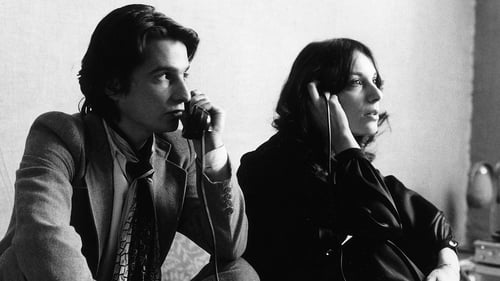
Man in Sunglasses in Store (uncredited)
클래식 음악과 실존주의 철학을 신봉하는 인텔리 알렉상드르는 직업도 없이 애인인 마리에게 빌붙어 살고 있다. 어느 날 그는 옛 연인 질베르트에게 청혼하지만 거절당한다. 그는 카페에서 우연히 만난 베로니카와 사랑에 빠지고, 마리와 베로니카는 서로를 질투하게 된다.

Writer
클래식 음악과 실존주의 철학을 신봉하는 인텔리 알렉상드르는 직업도 없이 애인인 마리에게 빌붙어 살고 있다. 어느 날 그는 옛 연인 질베르트에게 청혼하지만 거절당한다. 그는 카페에서 우연히 만난 베로니카와 사랑에 빠지고, 마리와 베로니카는 서로를 질투하게 된다.

Editor
클래식 음악과 실존주의 철학을 신봉하는 인텔리 알렉상드르는 직업도 없이 애인인 마리에게 빌붙어 살고 있다. 어느 날 그는 옛 연인 질베르트에게 청혼하지만 거절당한다. 그는 카페에서 우연히 만난 베로니카와 사랑에 빠지고, 마리와 베로니카는 서로를 질투하게 된다.

Director
클래식 음악과 실존주의 철학을 신봉하는 인텔리 알렉상드르는 직업도 없이 애인인 마리에게 빌붙어 살고 있다. 어느 날 그는 옛 연인 질베르트에게 청혼하지만 거절당한다. 그는 카페에서 우연히 만난 베로니카와 사랑에 빠지고, 마리와 베로니카는 서로를 질투하게 된다.
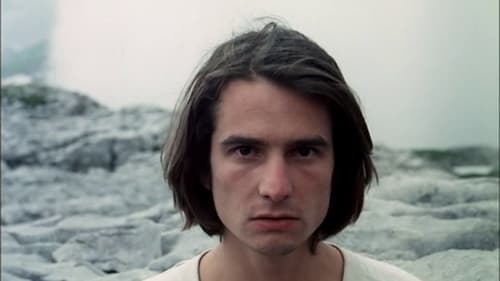
Editor
The intense and twisted relationship between a man and a woman in a bizarre wilderness, as a seductress accompanies a gunslinger fleeing from a posse.

Director
A family portrait in which the director profiles his grandmother, Odette Robert. Eustache includes in the film the conditions of its production — he is seated at the table with her, pours her some whiskey, speaks with the camera operator, manipulates the clapboard at the head and tail of the reels, and even takes a phone call. Robert, who was seventy-one, speaks rapidly and tells the story of her life, starting from her early childhood in villages in the Bordeaux region of France. A shorter version of the film ("Odette Robert") was edited in 1980 to be broadcast on television on TF1. The complete film only gained exposure in 2002, when it was salvaged by Boris Eustache, Thierry Lounas, João Bénard da Costa, Jean-Marie Straub, and Pedro Costa.

A family portrait in which the director profiles his grandmother, Odette Robert. Eustache includes in the film the conditions of its production — he is seated at the table with her, pours her some whiskey, speaks with the camera operator, manipulates the clapboard at the head and tail of the reels, and even takes a phone call. Robert, who was seventy-one, speaks rapidly and tells the story of her life, starting from her early childhood in villages in the Bordeaux region of France. A shorter version of the film ("Odette Robert") was edited in 1980 to be broadcast on television on TF1. The complete film only gained exposure in 2002, when it was salvaged by Boris Eustache, Thierry Lounas, João Bénard da Costa, Jean-Marie Straub, and Pedro Costa.

Editor
Eustache’s grandmother Odette Robert was a key figure in his life, serving as a substitute mother during much of his childhood (My Little Loves was dedicated to her). In 1971, he recorded an interview with her that went largely unseen until 2003—Eustache never screened the complete film publicly, although a radically truncated version was presented on television. In a string of long, stationary takes, the camera watches over Eustache’s shoulder while he pours countless glasses of whiskey and Odette tells the stories of her life. A number of her themes resonate with those of Eustache’s films: cruelty, male philandering, the Rosière festival of Pessac. Number Zero is a return to origins—of cinema and of the self—and an experiment in narration, both restrained and deeply personal.

Producer
Eustache’s grandmother Odette Robert was a key figure in his life, serving as a substitute mother during much of his childhood (My Little Loves was dedicated to her). In 1971, he recorded an interview with her that went largely unseen until 2003—Eustache never screened the complete film publicly, although a radically truncated version was presented on television. In a string of long, stationary takes, the camera watches over Eustache’s shoulder while he pours countless glasses of whiskey and Odette tells the stories of her life. A number of her themes resonate with those of Eustache’s films: cruelty, male philandering, the Rosière festival of Pessac. Number Zero is a return to origins—of cinema and of the self—and an experiment in narration, both restrained and deeply personal.

Writer
Eustache’s grandmother Odette Robert was a key figure in his life, serving as a substitute mother during much of his childhood (My Little Loves was dedicated to her). In 1971, he recorded an interview with her that went largely unseen until 2003—Eustache never screened the complete film publicly, although a radically truncated version was presented on television. In a string of long, stationary takes, the camera watches over Eustache’s shoulder while he pours countless glasses of whiskey and Odette tells the stories of her life. A number of her themes resonate with those of Eustache’s films: cruelty, male philandering, the Rosière festival of Pessac. Number Zero is a return to origins—of cinema and of the self—and an experiment in narration, both restrained and deeply personal.

Himself
Eustache’s grandmother Odette Robert was a key figure in his life, serving as a substitute mother during much of his childhood (My Little Loves was dedicated to her). In 1971, he recorded an interview with her that went largely unseen until 2003—Eustache never screened the complete film publicly, although a radically truncated version was presented on television. In a string of long, stationary takes, the camera watches over Eustache’s shoulder while he pours countless glasses of whiskey and Odette tells the stories of her life. A number of her themes resonate with those of Eustache’s films: cruelty, male philandering, the Rosière festival of Pessac. Number Zero is a return to origins—of cinema and of the self—and an experiment in narration, both restrained and deeply personal.

Director
Eustache’s grandmother Odette Robert was a key figure in his life, serving as a substitute mother during much of his childhood (My Little Loves was dedicated to her). In 1971, he recorded an interview with her that went largely unseen until 2003—Eustache never screened the complete film publicly, although a radically truncated version was presented on television. In a string of long, stationary takes, the camera watches over Eustache’s shoulder while he pours countless glasses of whiskey and Odette tells the stories of her life. A number of her themes resonate with those of Eustache’s films: cruelty, male philandering, the Rosière festival of Pessac. Number Zero is a return to origins—of cinema and of the self—and an experiment in narration, both restrained and deeply personal.

Editor
This landmark documentary by Jean Eustache, filmed in 1968, hilariously exposes small-town pomposity and naiveté as it chronicles the preparations for an annual contest to crown a village’s most virtuous young woman.

Writer
This landmark documentary by Jean Eustache, filmed in 1968, hilariously exposes small-town pomposity and naiveté as it chronicles the preparations for an annual contest to crown a village’s most virtuous young woman.

Director
This landmark documentary by Jean Eustache, filmed in 1968, hilariously exposes small-town pomposity and naiveté as it chronicles the preparations for an annual contest to crown a village’s most virtuous young woman.

A musician has to compose a commissioned work for a film. But his mind is guided by external solicitations that constantly divert him from his work.

Editor
In the third part of a Cinéastes triptych on Jean Renoir, the director sits alone in a cinema analyzing scenes from La Marseillaise and The Rules of the Game, and discussing his editing and storytelling techniques.
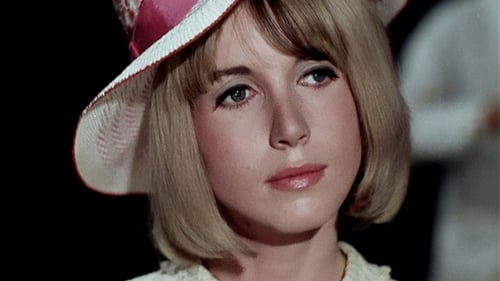
Editor
This satire concerns three French singing idols and their attempt to stay in the public eye. A press conference, backstage hedonism, psychedelia, manipulative managers and disc jockeys are portrayed as the pop culture is thoroughly and effectively lampooned in this independent feature.
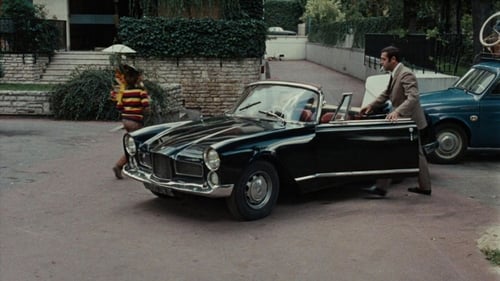
L'auto-stoppeur
주말에 여행을 떠나는 한 부르주아 커플을 통해 그들 계급이 지닌 허위의식을 적나라하게 비판한 작품, 식인, 변태적 성행위, 동물의 도살 등 카니발리즘과 포르노그라피적 요소가 가미되어 자본주의에 대한 경멸감을 심어준다.

Influenced and inspired by Jean-Luc Godard, some young french directors (Jean Eustache, Francis Leroi, Jean-Michel Barjol, Romain Goupil, Luc Moullet) are talking about their problems in producing less expensive and more free films in the french industry of cinema of the 60's.

Editor
Initially a made-to-order documentary on Spain, the film becomes an open-ended work-in-the-making about the creative process. “Settling in the Spanish capital to make a documentary, Hanoun sketches out for us the different steps involved in making a film. The author turns his hesitations, his doubts and difficult working conditions into the constituents of his work”. (Raphaël Bassan)

Editor
Second in the documentary trilogy from mastermind Jacques Rivette, featuring a conversation between Jean Renoir and Michel Simon

Editor
The first of three documentaries by Rivette on Jean Renoir.

Writer
Daniel needs some money to buy a duffle coat that is in fashion, so he agrees to work for a photographer by dressing up as Santa Claus. He discovers that it is much easier to meet girls when he is in his costume.

Director
Daniel needs some money to buy a duffle coat that is in fashion, so he agrees to work for a photographer by dressing up as Santa Claus. He discovers that it is much easier to meet girls when he is in his costume.

Editor
Two men in their twenties spend their time in Parisian cafes trying to pick up women. They take one girl dancing, and then steal her purse when she prefers to dance with another man.

Writer
Two men in their twenties spend their time in Parisian cafes trying to pick up women. They take one girl dancing, and then steal her purse when she prefers to dance with another man.

Director
Eustache’s debut film follows two young men near the place de Clichy, looking for fun and whatever trouble comes with it. Unsurprisingly, their attention ultimately falls on a girl. They go to a dancing called "Robinson". Spurned when she decides to go dancing with someone else, their thoughts quickly turn to revenge. Slowly, we discover the layer of despair that sits just under their carefree appearance. (kg)

Director

Director
Two men in their twenties spend their time in Parisian cafes trying to pick up women. They take one girl dancing, and then steal her purse when she prefers to dance with another man.

François Truffaut said of Paul Vecchiali in his early days that he was "the only true heir of Jean Renoir." The first short film of this director, who was to become a singular figure of independent French cinema, follows the path of an elderly woman towards her memories and beyond. Attentive, affectionate and sometimes cruel, Vecchiali's camera invents its own expressive language.

Writer
Unfinished film by Jean Eustache . A couple kisses. A group of friends talk inside a room. One of them reads from a paper.

Director
Unfinished film by Jean Eustache . A couple kisses. A group of friends talk inside a room. One of them reads from a paper.
